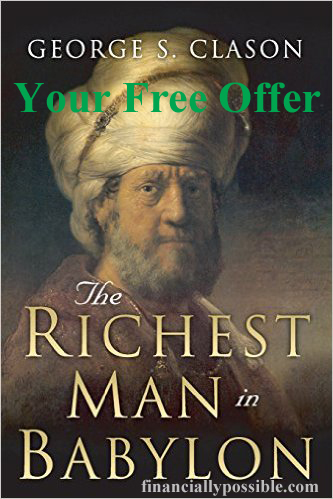As a financial coach, The Richest Man in Babylon, is one of the most best reads I’ve came across this year that will greatly help me add value to my clients. If you design your life following the financial principles and rules presented in the book, I’m confident you will become wealthy. I’m grateful Mr. George S. Clason took the time to write this book. My life is certainly enriched from having read it.
**Disclaimer: This post contains affiliate links, which means that if you click on one of the product links and make a purchase, I”ll receive a small commission. Thank you for helping keep this site running.**
To pay it forward, I’m offering 50 hours of free financial coaching and financial planning services to three people who respond to this post (more details at the end). My current clients are living in various states and at different stages of life. I take great joy and pride as I witness each of them taking small steps to improve their financial situations and knowing that I am part of their financial successes.

A Book Review of a Personal Finance Classic
If you read just one book on personal finance, then get the most bang for your buck (and your time). The Richest Man in Babylon fits that bill. At a mere 120 pages, it is a very quick read. Yet, each page is packed with invaluable, applicable and life-changing financial lessons.
The book is framed in the time of the ancient Babylonians. This culture invented money. They also invented loans, interest payments, and land titles. One thing became clear to me after having read this book: Certain laws and principles of personal finance have always been the same since the invention of money.
The book depicted stories of merchants, slaves, the building of ancient wonders, camels, wars, and wise men teaching others how to build wealth. The stories are of ancient times when life was much more difficult, but in some ways, that life was simpler. As I read, I couldn’t help but romanticize about the old days.
Are You a Free Man or a Slave?
Although the practice of slavery is pretty much abandoned throughout the world, the theme of slavery runs throughout this book. How is slavery applicable in today’s society? People today fall into two camps. Either you are enslaved by your own desires or you are the master of your desires.
Human desires are endless and it’s always easy to find ways to spend the money you’ve earned. Without controlling those desires, they turn around and control you. Once you fall into this rabbit hole, you’ll constantly be broke or in debt.
If you manage to master your desires, you can put your past savings to work for you on your behalf. The money invested wisely is like a slave earning even more money for his/her master.
Some people managed to have escaped from being enslaved by their own desires and became the masters of those desires. How did they do so? The book states it very elegantly, “A part of all you earn is yours to keep”. Adopting this mindset as a way of life can free you from the endless desires.
Thoughts on Specific Chapters
Several chapters have hilarious names. One example is the chapter on “Seven Cures for a Lean Purse”). This fifteen page chapter is densely packed with vital knowledge of personal finance. I’d suggest the impatient reader jump straight to it. From having read those fifteen pages alone, you would gain immediate benefits, provided you apply those principles regularly as you design your life.
Another great chapter is chapter 11. This chapter depicted a beautiful strategy for paying off debt. Ironically, “Chapter 11” is also shorthand for or a.k.a bankruptcy ever since the Bankruptcy Reform Act of 1978. Yet, this book was written in year 1926. The author couldn’t have foreseen this at the time of writing.
Not the Easiest Read, But Absolutely Worth Your Time
Some other great quotes from the book include:
- Better a little caution than a great regret.
- Like a bright light in a dark cave thy budget shows up the leaks from thy purse and enables thee to stop them and control thy expenditures for definite and gratifying purposes.
- Wise, indeed is he who investeth his treasures under the advice of men skilled in the ways of gold.
- The desire [for protection] is inherent in the human race. It is just as strong today as it ever was, but we have developed broader and better plans to accomplish the same purpose.
Some of the language used in the book can be a bit challenging for the modern reader. At times, I had to slow down in order to really process the messages. However, it is an appropriate read for anyone who has completed high school. Even if your reading level is below that, I still encourage you to give this book a try. Have the dictionary next to you as you read. This book can bring immense value to your life. It’s just what you need to start building wealth.
Back to That Free Offer
Still interested in getting 50 hours of free financial coaching and financial planning services (spread over nine months)? Respond to this post after you have read the Richest Man in Babylon and share the following:
- Let me know your thoughts on the book and which part of it you liked the most.
- How you stand to benefit from my services and what I should consider about your unique financial situation.
Based on the information you share with me, I will select three winners. The offer will go to those who’ve made the strongest case for my service. I’m looking forward to hearing from you!
*If you don’t want to purchase the book, visit your local library.

I am a big fan of this book and have definitely passed it along to friends and family over the years to read. I think the most life changing aspect was learning how to first pay myself. I use to pay all my expenses and then whatever was leftover was what I save. Now I purposely figure out how much I want to save and then pay my expenses from there. It’s amazing how when I changed that mindset how much more money I saved and how I was able to prioritize my expenses.